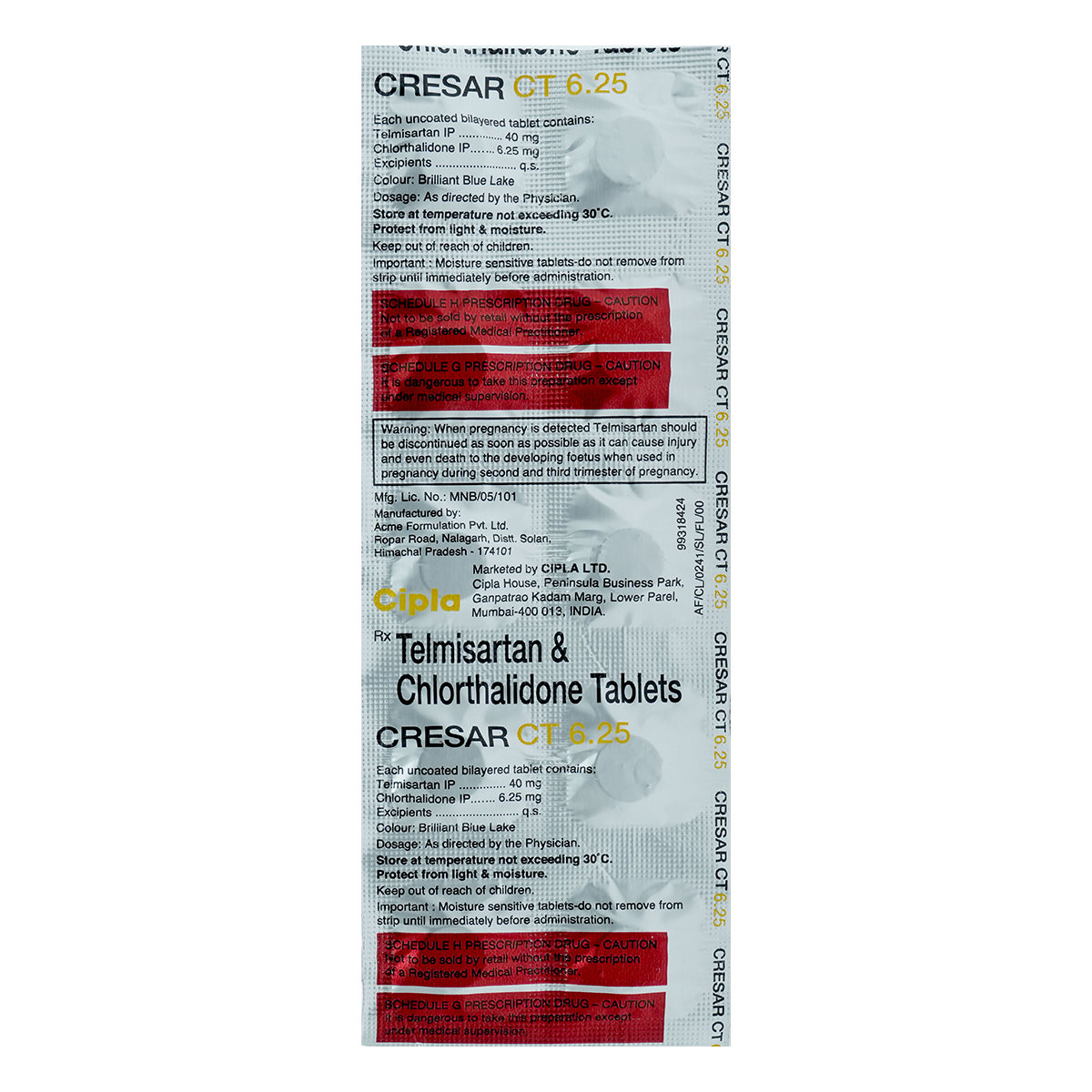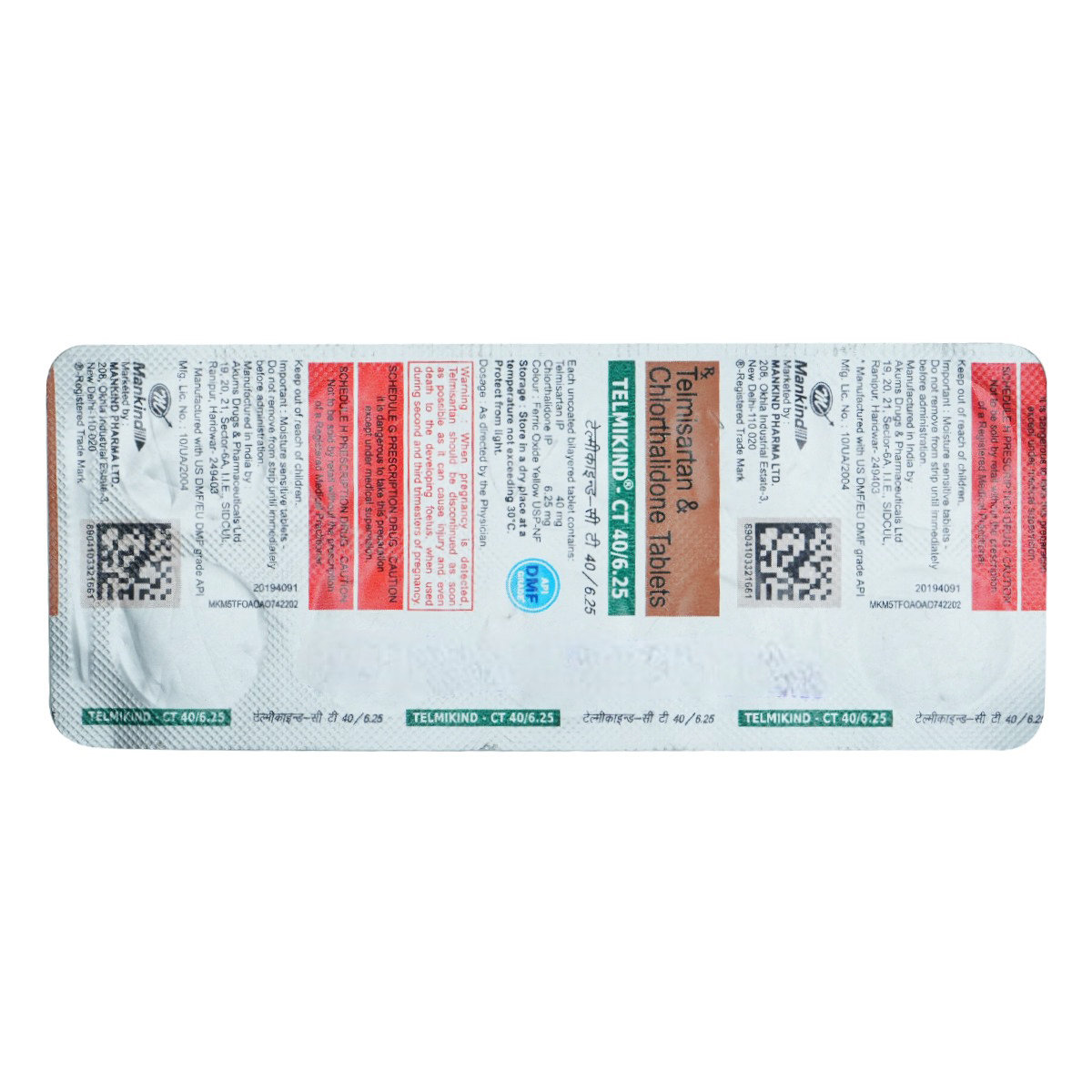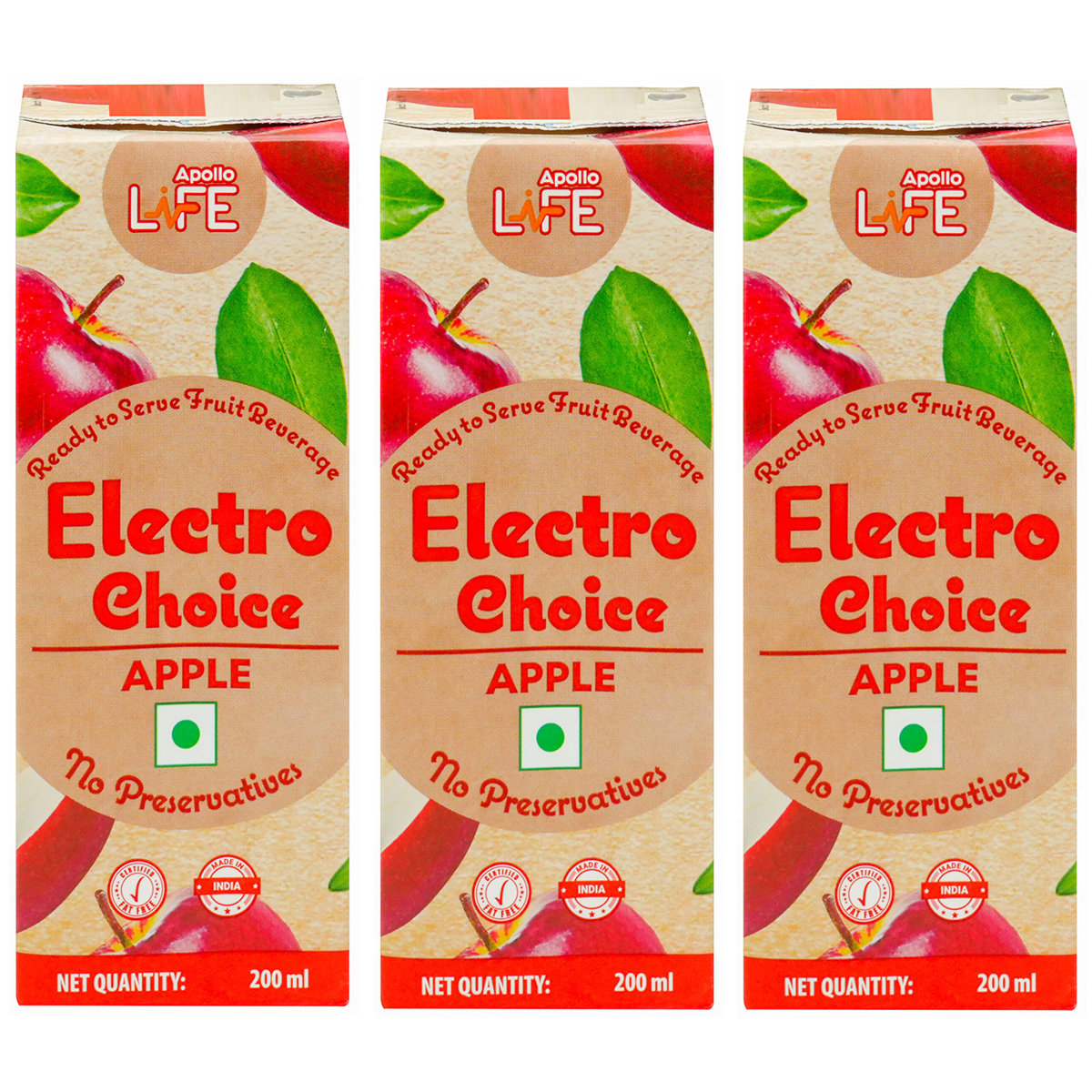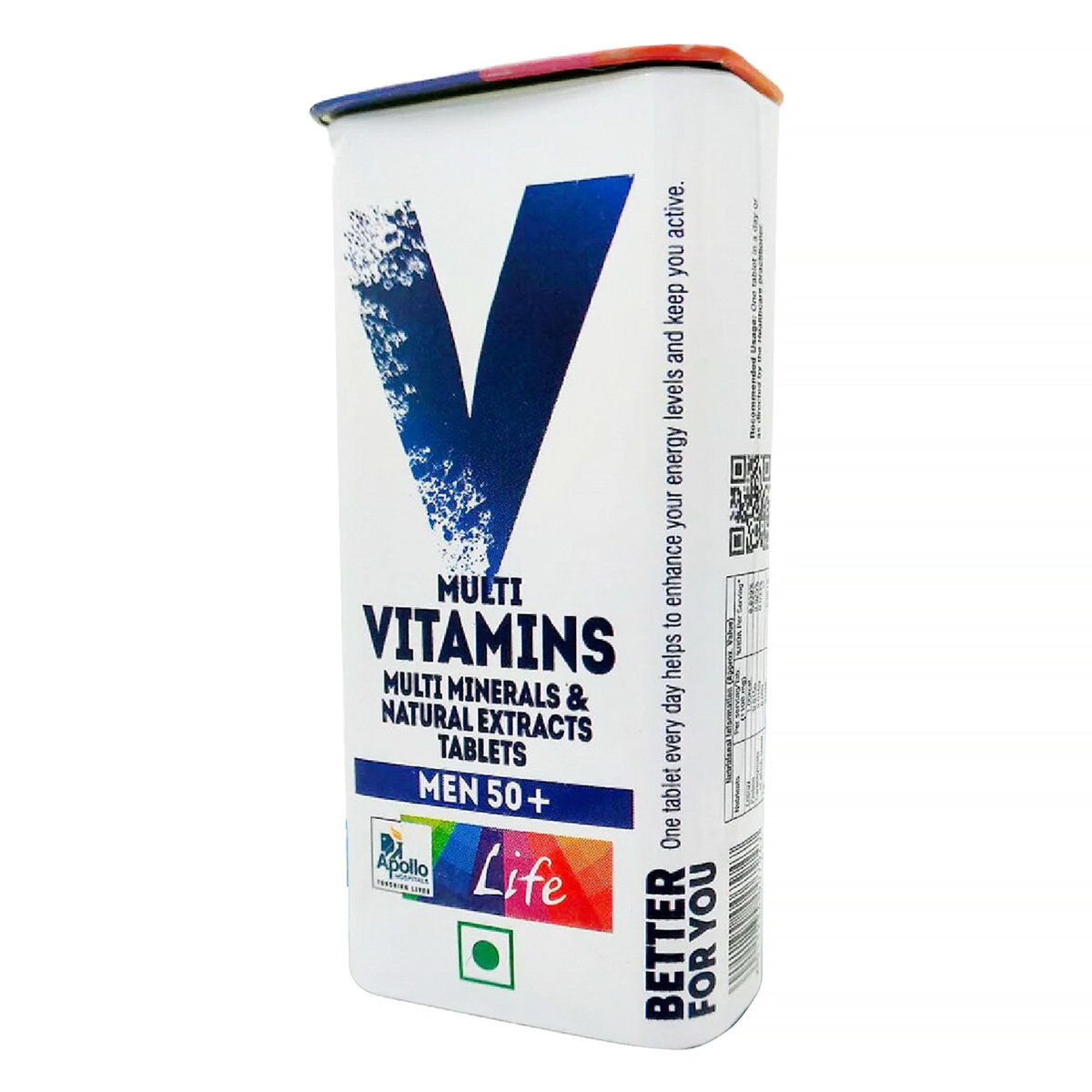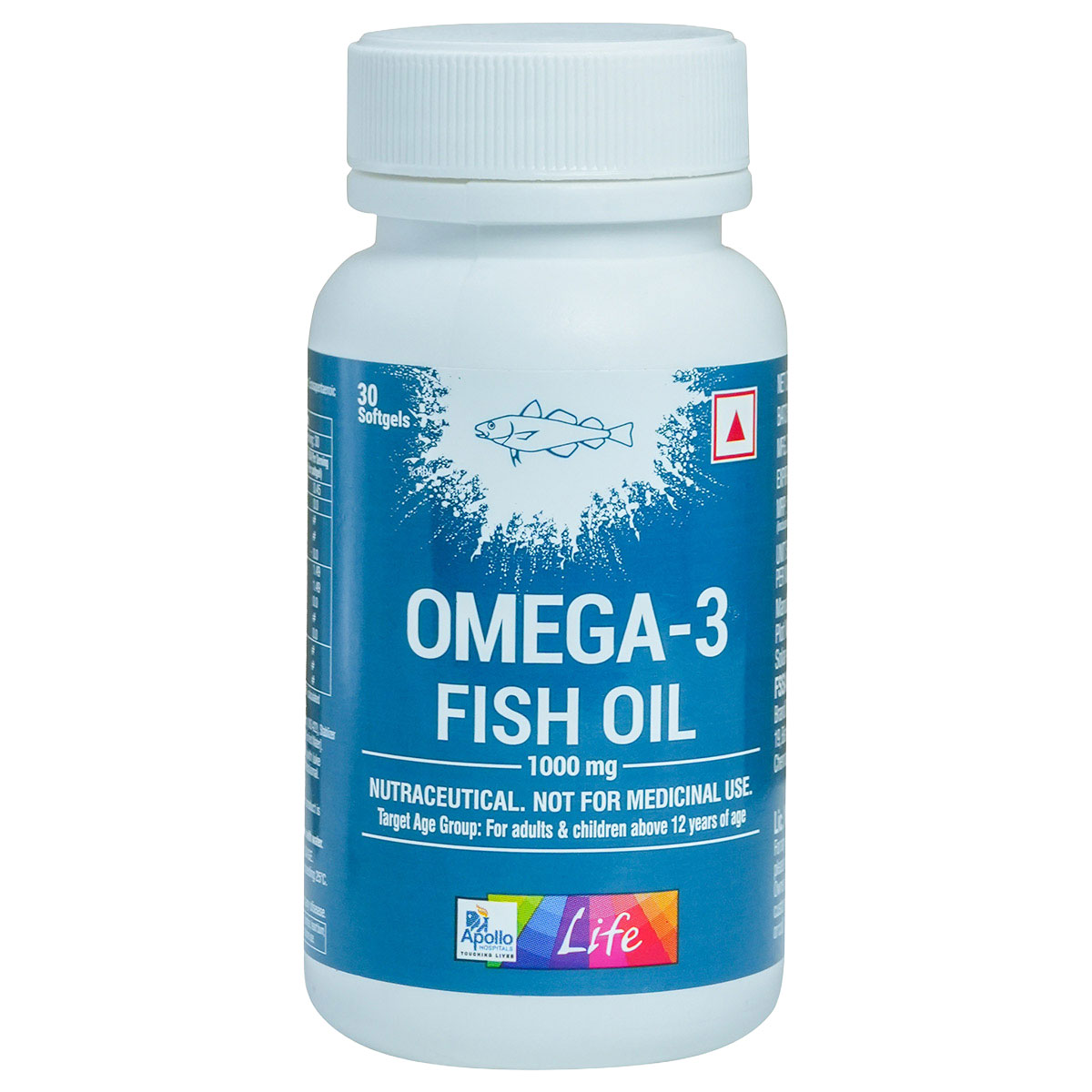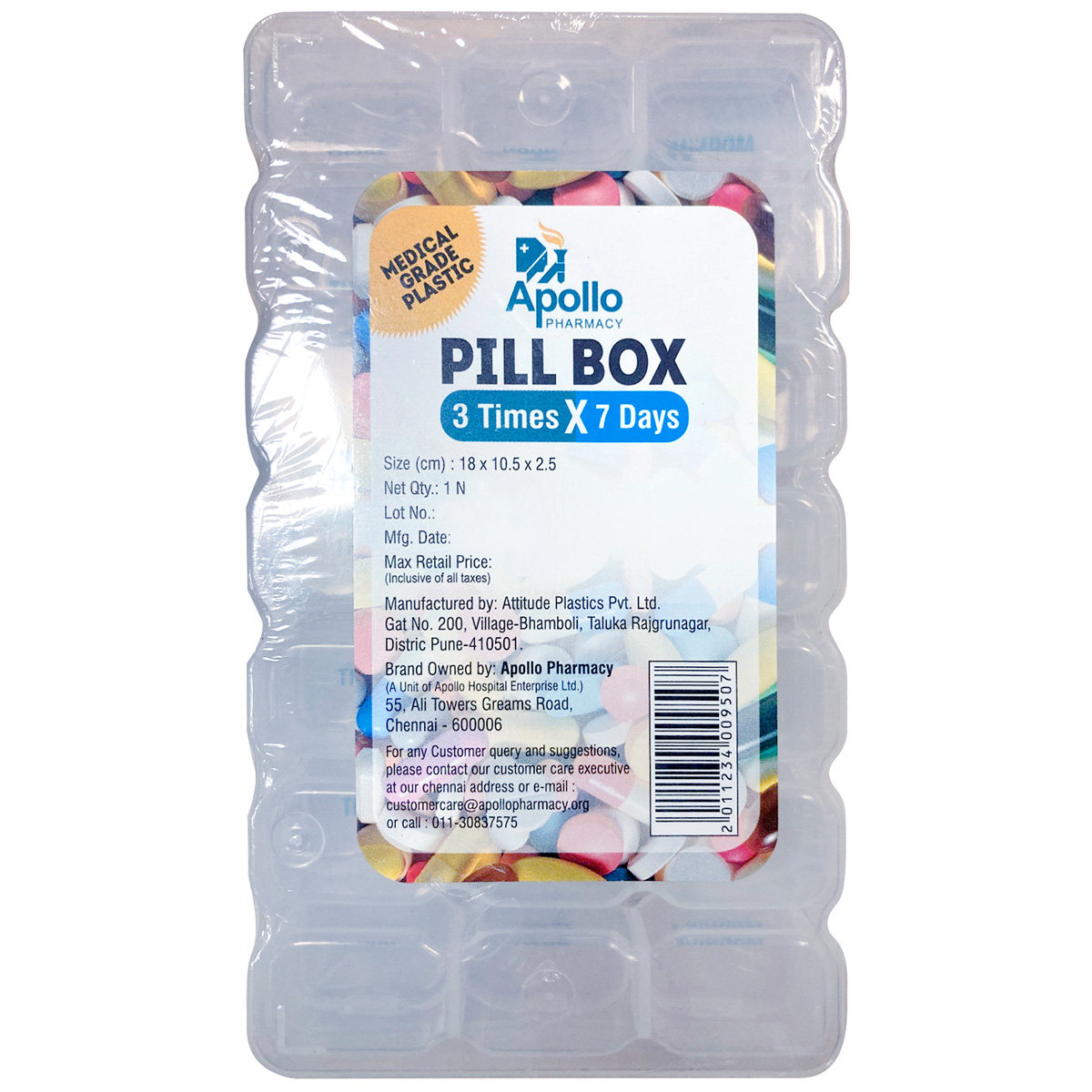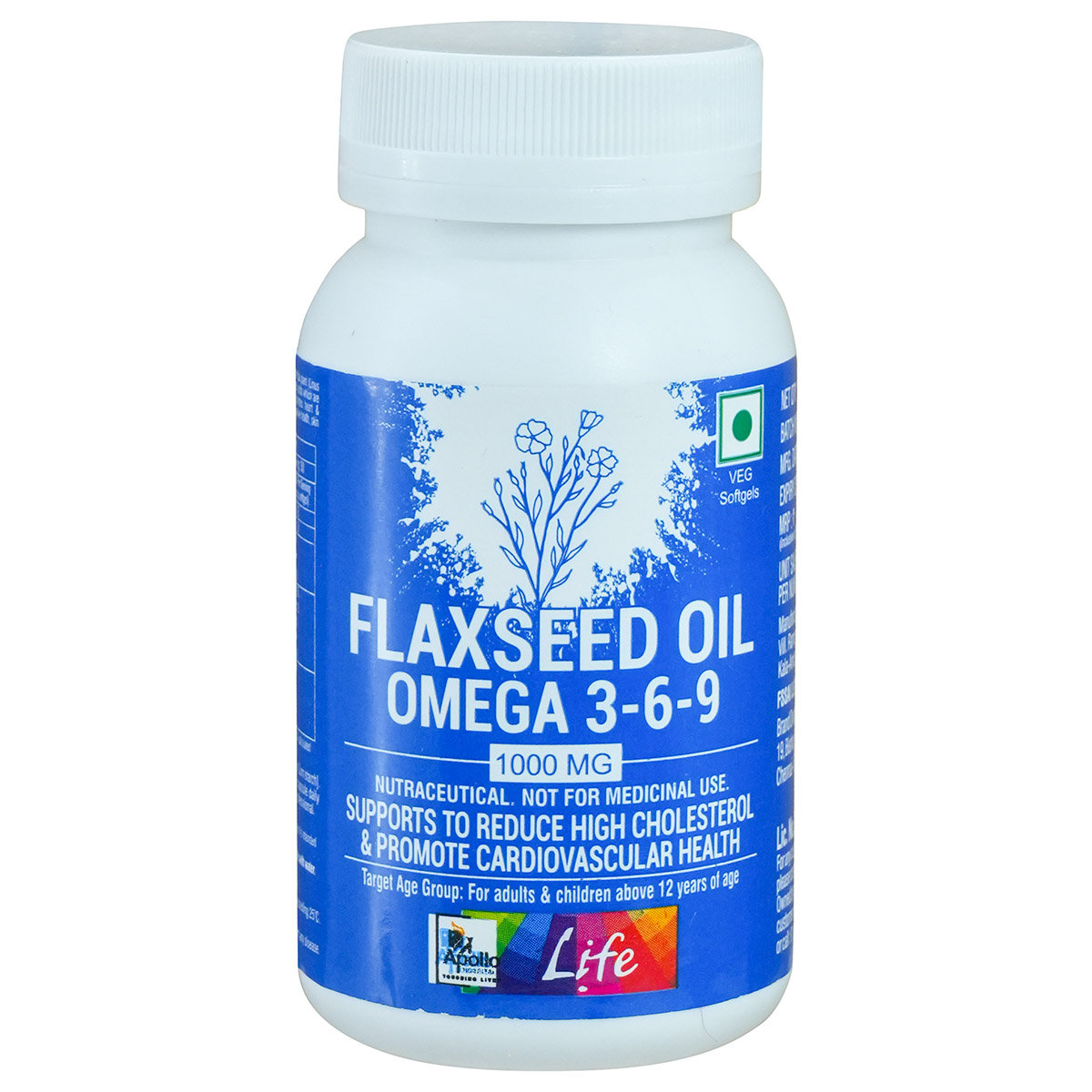CTD-T 6.25/40 Tablet 15's
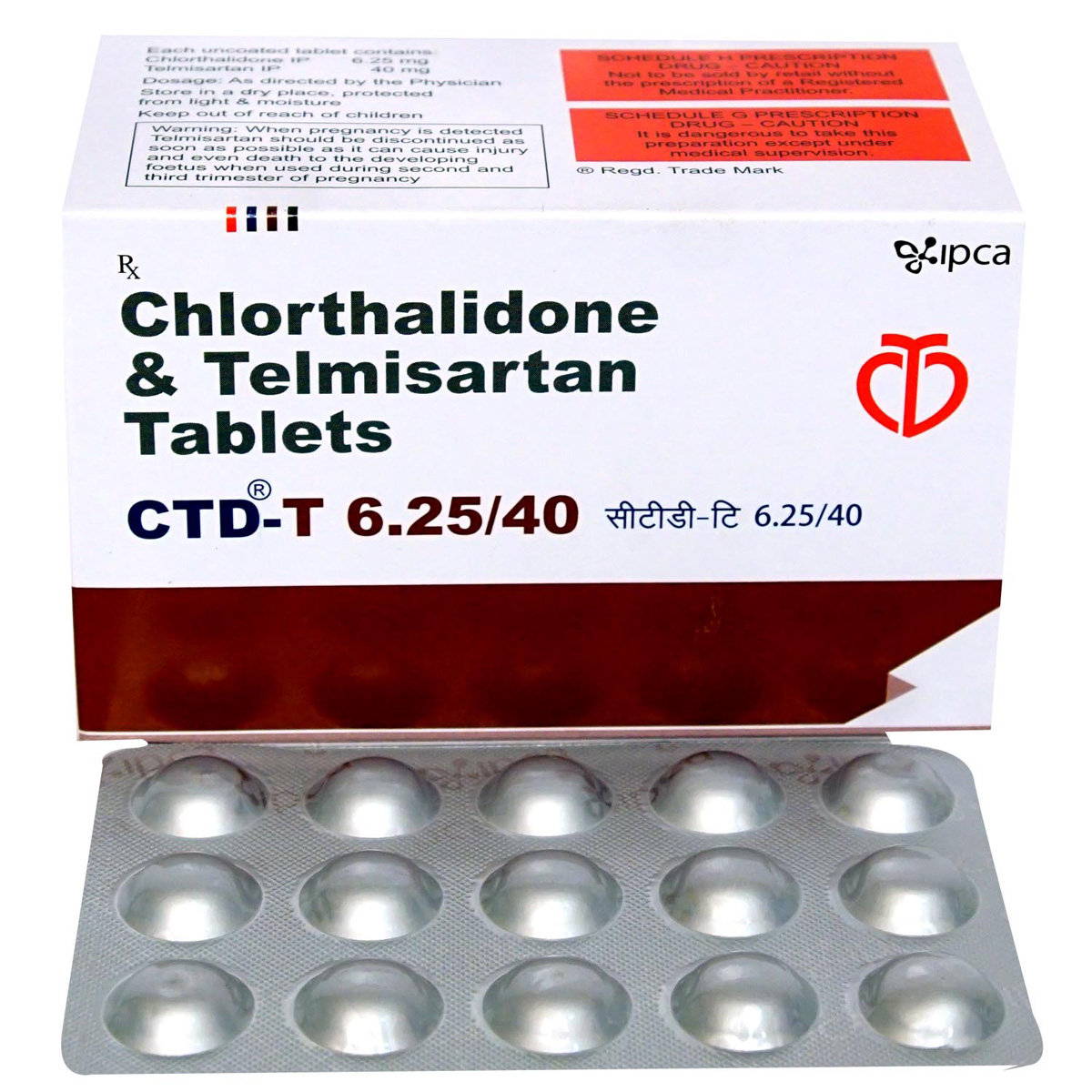
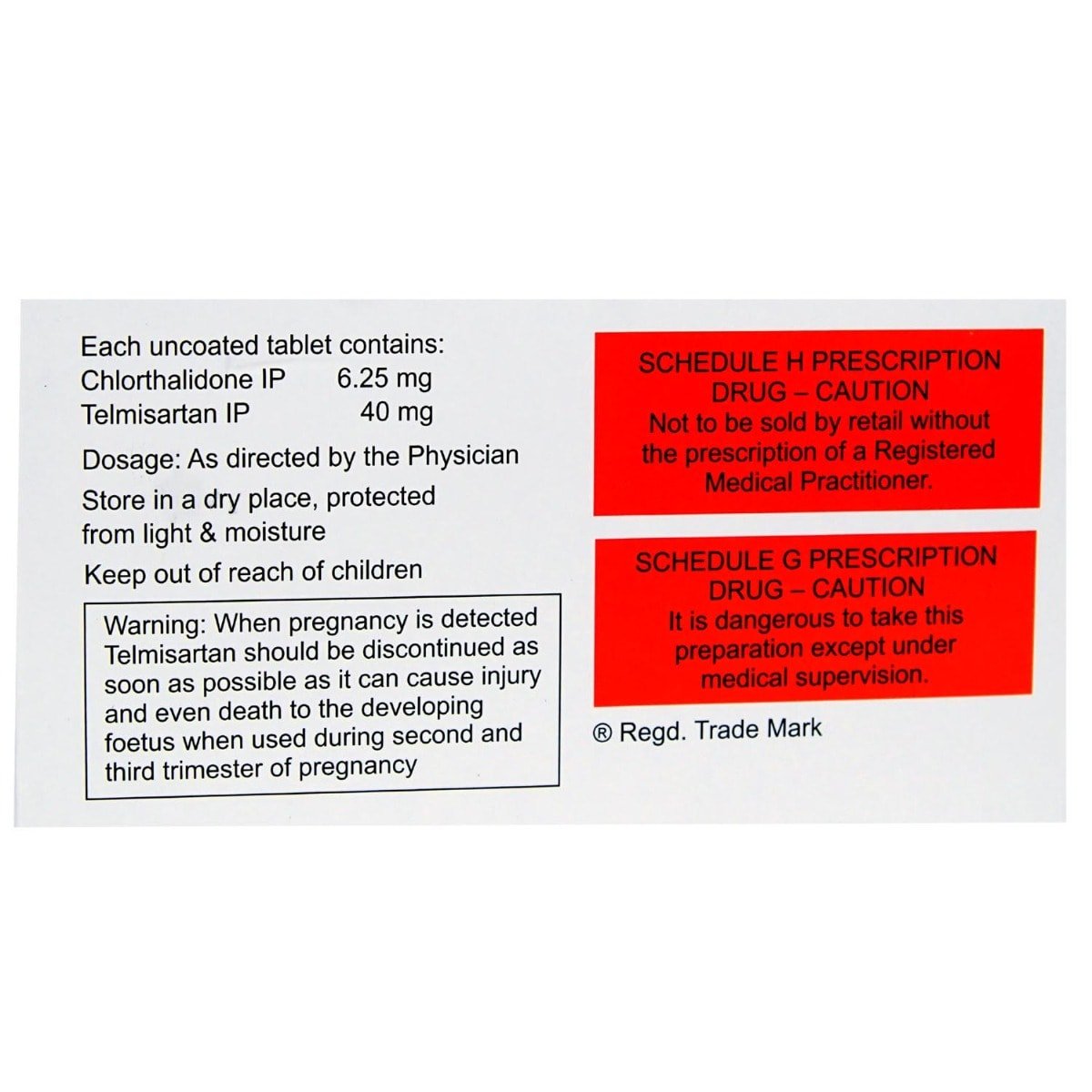
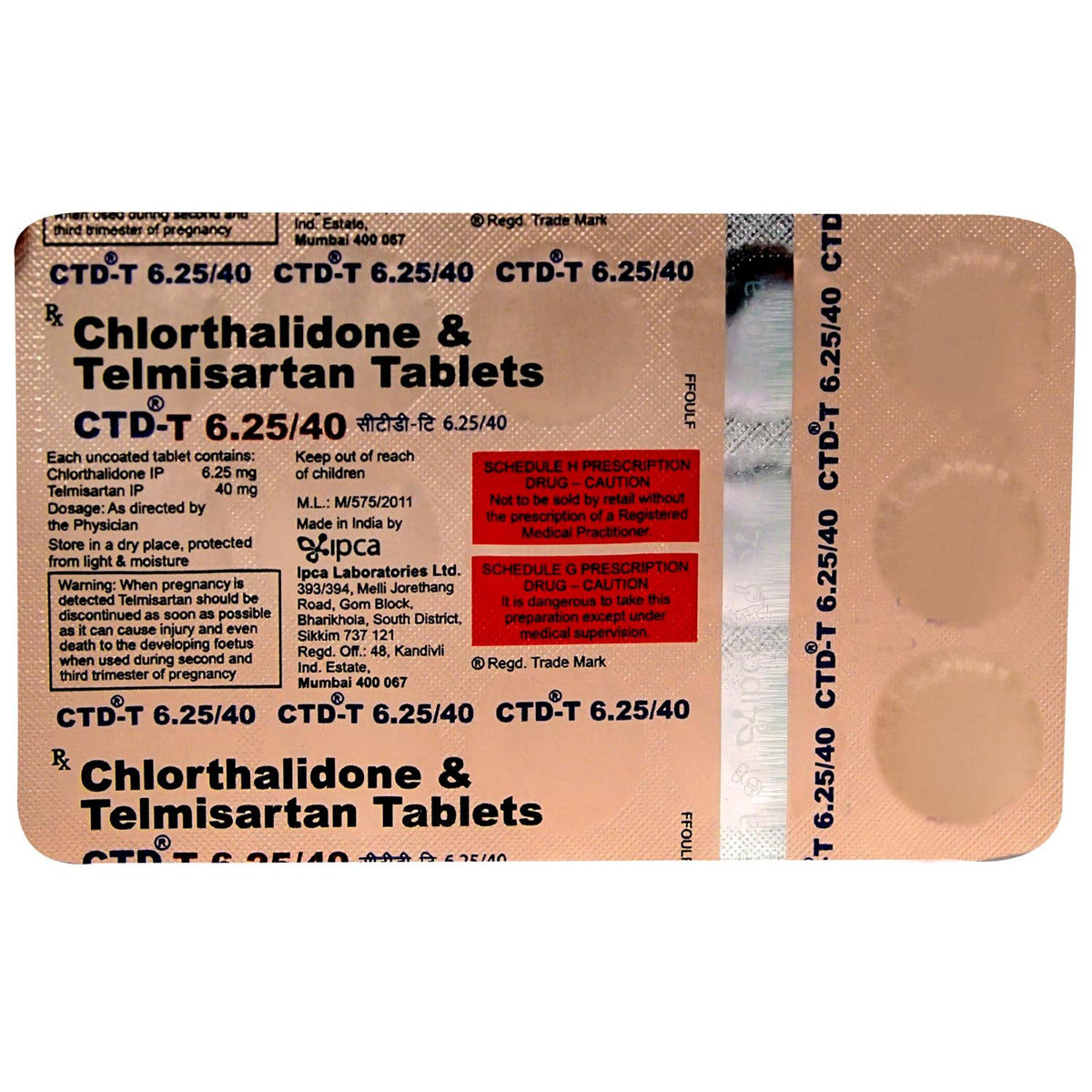
MRP ₹236.5
(Inclusive of all Taxes)
₹35.5 Cashback (15%)
CTD-T 6.25/40 Tablet is used to treat hypertension (high blood pressure). It contains Telmisartan and Chlorthalidone, which relaxes and widens the blood vessels. Also, it prevents the absorption of excess salt in the body, preventing fluid retention. Thus, it lowers blood pressure and prevents the risk of any future stroke, heart attack, and oedema (fluid retention). In some cases, you may experience dizziness, feeling tired, skin ulcers, diarrhoea, nausea diarrhoea, back pain, and cold/flu symptoms. Before taking this medicine, you should tell your doctor if you are allergic to any of its components or if you are pregnant/breastfeeding, and about all the medications you are taking and pre-existing medical conditions.
Know Your Delivery Time
Provide Delivery Location

Secure Payment

India's Most Trusted Pharmacy

Genuine Products
Composition :
Manufacturer/Marketer :
Consume Type :
Return Policy :
Expires on or after :
About CTD-T 6.25/40 Tablet
CTD-T 6.25/40 Tablet is primarily used to treat hypertension (high blood pressure). Hypertension or high blood pressure is a life-long or chronic condition in which the force exerted by the blood against the artery wall becomes too high. It can lead to the risk of heart diseases, like heart attack and stroke.
CTD-T 6.25/40 Tablet is a combination of Telmisartan and Chlorthalidone. This medicine helps to relax and widen the blood vessels (arteries). It also helps the body absorb excess salt, preventing fluid retention.
Not everyone who takes CTD-T 6.25/40 Tablet will experience these side effects. In some cases, you may experience dizziness, feeling tired, skin ulcers, diarrhoea, nausea diarrhoea, back pain, and cold/flu symptoms. Most of these side effects of CTD-T 6.25/40 Tablet do not require medical attention and gradually resolve over time. However, if the side effects are persistent, reach out to your doctor.
You can take CTD-T 6.25/40 Tablet with food or empty stomach. It should be swallowed as a whole with a glass of water. Do not chew, bite, crush, or break it. Your doctor will advise you on how often you should take your tablets based on your medical condition. It is always important to complete your treatment course for better results.
Inform your doctor if you are allergic to CTD-T 6.25/40 Tablet . Do not use potassium supplements or its salt substitutes, unless the doctor has told you. Consult your doctor if you are pregnant or planning to get pregnant. Additionally, avoid using CTD-T 6.25/40 Tablet if you are unable to urinate. Before taking CTD-T 6.25/40 Tablet , tell your doctor if you have ever had liver disease, kidney failure, glaucoma, high or low levels of magnesium or potassium in your blood, have allergies or asthma, lupus (an autoimmune disease), diabetes, or an allergy to penicillin or sulfa drugs.
Uses of CTD-T 6.25/40 Tablet
CTD-T 6.25/40 Tablet is used in the treatment of High blood pressure (hypertension). The detailed uses of CTD-T 6.25/40 Tablet are as follows:
- Treatment of Hypertension: CTD-T 6.25/40 Tablet controls hypertension by relaxing blood vessels and lowering blood pressure, making it easier for the heart to pump blood.
- Reducing Cardiovascular Risk: CTD-T 6.25/40 Tablet helps protect against heart attack, stroke, and other cardiovascular complications by lowering blood pressure and reducing the strain on the heart and blood vessels.
- Kidney Protection: CTD-T 6.25/40 Tablet provides kidney protection by reducing blood pressure and slowing the progression of kidney disease.
- Managing Fluid Retention: CTD-T 6.25/40 Tablet helps to manage fluid retention (edema) associated with hypertension.tension (high blood pressure).

Have a query?
Directions for Use
- CTD-T 6.25/40 Tablet can be taken on an empty stomach or as advised by your doctor.
- Follow your doctor's instructions on the dosage and timing of this medication.
- Swallow CTD-T 6.25/40 Tablet as a whole with a glass of water.
- Do not crush, break, or chew it.
Medicinal Benefits
- CTD-T 6.25/40 Tablet works by relaxing and widening the blood vessels (arteries), making the heart more efficient at pumping blood throughout the body.
- It helps to lower high blood pressure, thus reducing the chances of future heart attack and stroke.
- CTD-T 6.25/40 Tablet prevents excessive water and electrolytes (like sodium, potassium etc.) from the body through urine, which can raise high blood pressure.
How CTD-T 6.25/40 Tablet Works
Storage
- Inform your doctor about the symptoms you're experiencing due to medication.
- Your doctor may adjust your treatment plan, which could include changing your medication, adding new medications, or offering advice on managing your symptoms.
- Practice good hygiene, including frequent handwashing, avoiding close contact with others, and avoiding sharing utensils or personal items.
- Stay hydrated by drinking plenty of fluids to help loosen and clear mucus from your nose, throat, and airways.
- Get plenty of rest and engage in stress-reducing activities to help your body recover. If your symptoms don't subside or worsen, consult your doctor for further guidance.
- Talk to your doctor about your back pain and potential medication substitutes or dose changes.
- Try yoga or Pilates and other mild stretching exercises to increase flexibility and strengthen your back muscles.
- To lessen the tension on your back, sit and stand upright and maintain proper posture.
- To alleviate discomfort and minimize inflammation, apply heat or cold packs to the afflicted area.
- Under your doctor's supervision, think about taking over-the-counter painkillers like acetaminophen or ibuprofen.
- Make ergonomic adjustments to your workspace and daily activities to reduce strain on your back.
- To handle tension that could make back pain worse, try stress-reduction methods like deep breathing or meditation.
- Use pillows and a supportive mattress to keep your spine in the right posture as you sleep.
- Back discomfort can worsen by bending, twisting, and heavy lifting.
- Speak with a physical therapist to create a customized training regimen to increase back strength and flexibility.
- Consult your doctor if you experience symptoms of sinusitis, such as nasal congestion, facial pain, or headaches, which may be triggered by your medication.
- Your doctor may adjust your treatment plan by changing your medication, adding new medications, or providing guidance on managing your sinusitis symptoms.
- Practice good hygiene, including frequent handwashing, avoiding close contact with others, and avoiding sharing utensils or personal items.
- If your doctor advises, you can use nasal decongestants or saline nasal sprays to help relieve nasal congestion and sinus pressure.
- To help your body recover, get plenty of rest, stay hydrated, and engage in stress-reducing activities. If your symptoms persist or worsen, consult your doctor for further guidance.
- Drink water or other clear fluids.
- To prevent worsening of pain, limit intake of tea, coffee, or alcohol.
- Include bland foods like rice, toast, crackers, and rice in your diet.
- Avoid lying down immediately after eating as it may cause indigestion or heartburn.
- Avoid acidic and spicy food as it may cause indigestion.
- If you experience low blood pressure symptoms like dizziness, lightheadedness, or fainting while taking medication, seek immediate medical attention.
- Make lifestyle modifications and adjust your medication regimen under medical guidance to manage low blood pressure.
- As your doctor advises, regularly check your blood pressure at home. Record your readings to detect any changes and share them with your doctor.
- Fluid intake plays a vital role in managing blood pressure by maintaining blood volume, regulating blood pressure, and supporting blood vessel function. Drinking enough fluids helps prevent dehydration, maintain electrolyte balance, and regulate fluid balance.
- Take regular breaks to sit or lie down if you need to stand for long periods.
- When lying down, elevate your head with extra pillows to help improve blood flow.
- Avoid heavy exercise or strenuous activities that can worsen low blood pressure.
- Wear compression socks as your doctor advises to enhance blood flow, reduce oedema, and control blood pressure.
- If symptoms persist or worsen, or if you have concerns about your condition, seek medical attention for personalized guidance and care.
- Avoid triggers like alcohol, caffeine, and energy drinks.
- Try relaxation techniques such as yoga, meditation, or deep breathing.
- Exercise regularly as it helps maintain heart health.
- Follow a nutritious and balanced diet.
- Gently massage the affected area using your hands or a massager.
- Light exercises such as walking or climbing stairs may help the muscles return to normal.
- Apply heat/ice to the affected area.
- Drink electrolyte-rich fluids.
What if I have taken an overdose of CTD-T 6.25/40 Tablet
Drug Warnings
- CTD-T 6.25/40 Tablet should not be given to people who are allergic to CTD-T 6.25/40 Tablet , have low blood pressure (less than 90 mm of Hg), have had a heart attack, or have severe kidney disease.
- It should be used with caution in patients suffering from diabetes.
- CTD-T 6.25/40 Tablet is not recommended in patients with low blood pressure (hypotension), cardiogenic shock (sudden stopping of blood flow to the heart), and aortic stenosis (heart valve problem).
- Before taking CTD-T 6.25/40 Tablet , tell your doctor if you have ever had liver disease, kidney failure, glaucoma, high or low levels of magnesium or potassium in your blood, have allergies or asthma, lupus (an autoimmune disease), diabetes, or an allergy to penicillin or sulfa drugs.
- Pregnant and breastfeeding mothers should consult a physician before taking CTD-T 6.25/40 Tablet .
- Don't stop taking CTD-T 6.25/40 Tablet without your doctor's advice. Suddenly stopping the use of CTD-T 6.25/40 Tablet may cause changes in your heart rhythm and blood pressure, cause chest pain, or a heart attack. Your doctor will gradually lower your dose to help prevent these symptoms.
- This medicine is not recommended for use in children below 6 years of age.
- CTD-T 6.25/40 Tablet can cause a condition that results in skeletal muscle problems, leading to further kidney failure.
- If you notice unexplained muscle pain, dark colour urine, tenderness, or weakness, especially if you also have a fever or unexplained tiredness, immediately contact the doctor.
- If you have anuria (non-passage of urine), please do not take CTD-T 6.25/40 Tablet as it is not recommended and may lead to further complications.
Drug-Drug Interactions
Drug-Drug Interactions
Login/Sign Up
Co-administration of Aliskiren with CTD-T 6.25/40 Tablet can increase the risk of hyperkalemia (high potassium levels in the blood).
How to manage the interaction:
Taking CTD-T 6.25/40 Tablet with Aliskiren can possibly lead to an interaction, please consult a doctor before taking it. Do not discontinue the medications without consulting a doctor.
Co-administration of CTD-T 6.25/40 Tablet and cisapride may increase the risk or severity of an irregular heart rhythm that may be serious.
How to manage the interaction:
Taking CTD-T 6.25/40 Tablet with Cisapride is not recommended, please consult your doctor before taking it. Do not discontinue the medication without consulting a doctor.
Taking trimethoprim with CTD-T 6.25/40 Tablet may increase potassium levels in the blood.
How to manage the interaction:
Although there is an interaction between CTD-T 6.25/40 Tablet and trimethoprim, they can be taken together if prescribed by a doctor. However, consult a doctor if you experience nausea, vomiting, weakness, confusion, tingling of the hands and feet, feelings of heaviness in the legs, and a weak pulse. Do not discontinue the medications without consulting a doctor.
Taking Potassium Iodide with CTD-T 6.25/40 Tablet can make high levels of potassium in the blood more likely.
How to manage the interaction:
Although taking Potassium iodide and CTD-T 6.25/40 Tablet together can evidently cause an interaction, it can be taken if your doctor has suggested it. Do not stop using any medications without a doctor's advice.
Co-administration of CTD-T 6.25/40 Tablet increases levels of eluxadoline by increasing metabolism.
How to manage the interaction:
Taking CTD-T 6.25/40 Tablet with Eluxadoline together can possibly result in an interaction, but it can be taken if your doctor has advised it. Do not discontinue any medications without consulting a doctor.
Taking lisinopril with CTD-T 6.25/40 Tablet may increase the levels of potassium in blood.
How to manage the interaction:
Although there is a possible interaction, CTD-T 6.25/40 Tablet can be taken with lisinopril if prescribed by the doctor. Consult the prescriber if you experience symptoms of high potassium such as nausea, vomiting, weakness, confusion, tingling of the hands and feet, feelings of heaviness in the legs, a weak pulse, or a slow or irregular heartbeat. Maintain adequate fluid intake during treatment with these medications.
Taking perindopril with CTD-T 6.25/40 Tablet may increase the risk of side effects such as low blood pressure, kidney function impairment, and high blood potassium.
How to manage the interaction:
Although there is a possible interaction, CTD-T 6.25/40 Tablet can be taken with perindopril if prescribed by the doctor. Consult the prescriber if you experience symptoms of high potassium such as nausea, vomiting, weakness, confusion, tingling of the hands and feet, feelings of heaviness in the legs, a weak pulse, or a slow or irregular heartbeat. Maintain adequate fluid intake during treatment with these medications. Do not discontinue the medications without consulting a doctor.
Taking CTD-T 6.25/40 Tablet with benazepril may increase the risk of side effects such as low blood pressure, kidney function impairment, and high blood potassium.
How to manage the interaction:
Although there is a possible interaction, CTD-T 6.25/40 Tablet can be taken with benazepril if prescribed by the doctor. Consult the prescriber if you experience symptoms of high potassium such as nausea, vomiting, weakness, confusion, tingling of the hands and feet, feelings of heaviness in the legs, a weak pulse, or a slow or irregular heartbeat. Maintain adequate fluid intake during treatment with these medications. Do not discontinue the medication without consulting a doctor.
Taking quinapril with CTD-T 6.25/40 Tablet may increase the risk of side effects such as low blood pressure, kidney function impairment, and high blood potassium.
How to manage the interaction:
Although there is a possible interaction, CTD-T 6.25/40 Tablet can be taken with quinapril if prescribed by the doctor. Consult the prescriber if you experience symptoms of high potassium, such as nausea, vomiting, weakness, confusion, tingling of the hands and feet, feelings of heaviness in the legs, a weak pulse, or a slow or irregular heartbeat. Maintain adequate fluid intake during treatment with these medications. Do not discontinue the medications without consulting a doctor.
Taking tizanidine with CTD-T 6.25/40 Tablet may have additive effects in lowering the blood pressure.
How to manage the interaction:
Although there is a possible interaction, CTD-T 6.25/40 Tablet can be taken with tizanidine if prescribed by your doctor. Consult the prescriber if you experience symptoms of low blood pressure, such as headache, dizziness, lightheadedness, fainting, and/or changes in pulse or heart rate. Be cautious when getting up from a sitting or lying position. Do not discontinue the medications without consulting a doctor.
Drug-Food Interactions
Drug-Food Interactions
Login/Sign Up
Lentils, Orange Juice, Oranges, Raisins, Potatoes, Salmon Dried, Spinach, Sweet Potatoes, Tomatoes, Coconut Water, Beans, Beetroot, Broccoli, Bananas, Apricots, Avocado, Yogurt
How to manage the interaction:
Taking CTD-T 6.25/40 Tablet along with potassium-containing salt substitutes or over-the-counter potassium supplements it may lead to high potassium levels in blood. Avoid high potassium rich food while taking CTD-T 6.25/40 Tablet as it can possibly result in an interaction. However, consult a doctor if you experience weakness, irregular heartbeat, confusion and feelings of heaviness in the legs.
Diet & Lifestyle Advise
- Keep your weight under control with a BMI of 19.5-24.9.
- Do regular physical activity or exercise for at least 150 minutes per week, or about 30 minutes most days of the week. Doing this can help you to lower your raised blood pressure by about 5 mm of Hg.
- Limit intake of sodium chloride (table salt) in your daily diet to 2300 mg per day or less than 1500 mg is ideal for most adults.
- If you are taking alcohol, then only one serving for women and two servings is advisable.
- Quitting smoking is the best strategy to lower the risk of heart disease.
- Avoid chronic stress as it can raise your blood pressure. Try to enjoy and spent time with your loved ones to cope with stress and practice mindfulness techniques.
- Monitor your blood pressure daily and if there is too much fluctuation, then immediately contact your doctor.
- Try to include heart-healthy omega-3 fatty acids containing food drinks in your daily diet. You can also use low-fat cooking oil like olive oil, soybean oil, canola oil, and coconut oil to lower your elevated blood pressure.
Habit Forming
Therapeutic Class
All Substitutes & Brand Comparisons
RX
Telmiride-CH 40 mg/6.25 mg Tablet 10's
Unison Pharmaceuticals Pvt Ltd
₹33.5
(₹3.02 per unit)
78% CHEAPERRX
Cresar CT 6.25 Tablet 10's
Cipla Ltd
₹67.5
(₹6.08 per unit)
57% CHEAPERRX
Telmikind-CT 40/6.25 Tablet 10's
Mankind Pharma Pvt Ltd
₹71
(₹6.39 per unit)
54% CHEAPER
Alcohol
Unsafe
You are recommended not to consume alcohol and CTD-T 6.25/40 Tablet to avoid unpleasant side effects like drowsiness, dizziness, and liver damage.
Pregnancy
Unsafe
CTD-T 6.25/40 Tablet is not recommended during pregnancy as it is a category D pregnancy drug. This medicine may cause fetal damage and can affect the unborn baby (fetus).
Breast Feeding
Consult your doctor
CTD-T 6.25/40 Tablet is known to pass breast milk, but its effect on the baby is not known. So, before breastfeeding, let your doctor know about this. Either you need to stop breastfeeding for using CTD-T 6.25/40 Tablet , or you need to stop takingCTD-T 6.25/40 Tablet .
Driving
Unsafe
Drive with caution, CTD-T 6.25/40 Tablet usually causes drowsiness and affects driving ability.
Liver
Caution
CTD-T 6.25/40 Tablet to be taken with caution, especially if you have had a history of liver disease. Your doctor will have to change the dosage depending on your medical condition and your reaction to treatment.
Kidney
Unsafe
CTD-T 6.25/40 Tablet is not recommended in patients with chronic kidney disease (severe renal impairment).
Children
Caution
Efficacy and safety of CTD-T 6.25/40 Tablet have not been established in children. If prescribed, it should be strictly under medical supervision and only if the benefits overweight the harms.
Heart
CTD-T 6.25/40 Tablet is safe for use in heart patients if recommended by the physician.
Geriatrics
Caution
CTD-T 6.25/40 Tablet should be used under caution in geriatric patients. Please consult your physician.
FAQs
CTD-T 6.25/40 Tablet belongs to the class of anti-hypertensives used to treat hypertension (high blood pressure).
No, you are advised to inform your doctor and monitor your blood pressure for at least two weeks before stopping the medicine. Depending upon your current blood pressure readings, there is a possibility your doctor may lower your medicine dosage and not recommend discontinuing it.
CTD-T 6.25/40 Tablet can be safely taken as long as your doctor has prescribed it to you. Conditions such as high blood pressure are life-long conditions, and one should not abruptly discontinue it without discussing it with a doctor.
It is not recommended to take CTD-T 6.25/40 Tablet if you are pregnant as it can cause damage to the unborn baby (may lead to fetal toxicity). It contains telmisartan, a category D pregnancy drug, and it is harmful to the baby.
Yes, CTD-T 6.25/40 Tablet can cause dizziness. It is advised to avoid driving or operate any heavy machinery while taking CTD-T 6.25/40 Tablet . In case you feel dizzy or lightheaded, it is advised to rest for some time until you feel better.
You should not take CTD-T 6.25/40 Tablet if you have ever had liver disease, kidney failure, glaucoma, high or low levels of magnesium or potassium in your blood, have allergies or asthma, lupus (an autoimmune disease), diabetes, or allergic to penicillin or sulfa drugs, anuria (reduction or absence of urine) and pregnant women in their second or third trimesters. Besides this, avoid using CTD-T 6.25/40 Tablet (in case of diabetes) with aliskiren (a blood pressure medicine) as it can lead to a life-threatening condition.
In case you have missed a dose of CTD-T 6.25/40 Tablet , you are advised to take it as soon as you remember. However, try not to miss a dose in the first place; if it's time for you to take your next dose, then do not take both doses together. Take only one dose; taking a double dose of CTD-T 6.25/40 Tablet will lead to low blood pressure.
Yes, prolonged intake of CTD-T 6.25/40 Tablet can cause an increase in blood potassium level. So, patients taking CTD-T 6.25/40 Tablet should avoid taking supplements and food rich in potassium to avoid any unpleasant side-effect.
CTD-T 6.25/40 Tablet contains a diuretic (chlorthalidone) which may affect a man's ability to maintain or gain an erection (erectile dysfunction). However, if you have any problem, you can consult your doctor, and accordingly, your medicine can be changed as other blood pressure-lowering medication does not affect erection.
To manage high blood pressure, focus on eating more fruits, vegetables, and whole grains. Limit sodium intake by reducing consumption of processed foods. Choose lean proteins and healthy fats. Avoid excessive sugar and alcohol. If you have specific dietary needs or concerns, consult a healthcare professional.
Most of these side effects of CTD-T 6.25/40 Tablet do not require medical attention and gradually resolve over time. However, if the side effects are persistent, reach out to your doctor.
CTD-T 6.25/40 Tablet can cause frequent urination. This is a common side effect due to the medication's diuretic properties. If it's bothersome, talk to your doctor for advice.
CTD-T 6.25/40 Tablet can cause dizziness. This is due to its effects on blood pressure. If you experience dizziness, sit down and avoid sudden movements. Talk to your doctor if it's persistent or severe.
If you stop taking CTD-T 6.25/40 Tablet without talking to your doctor, your blood pressure might go up suddenly. This can be bad for your health. It's important to discuss any changes to your medication with your doctor.
Yes, it's usually okay to take CTD-T 6.25/40 Tablet for a long time, but your doctor should check you regularly. Long-term use can sometimes cause side effects, so it's important to talk to your doctor about any concerns.
If isn't helping, talk to your doctor. They can help you figure out why and decide what to do next. Don't stop taking the medicine without talking to them first.
To help your blood pressure, eat healthy, exercise regularly, and manage your weight. Try to limit alcohol and caffeine, and avoid smoking. If you have any questions, talk to your doctor.
CTD-T 6.25/40 Tablet is a combination of Telmisartan (angiotensin II receptor antagonist) and Chlorthalidone (thiazide diuretic or water pill).
It is not recommended to take CTD-T 6.25/40 Tablet if you are pregnant as it can cause damage to the unborn baby (may lead to fetal toxicity). It contains telmisartan, a category D pregnancy drug, and it is harmful to the baby.
Common side effects of CTD-T 6.25/40 Tablet may include, dizziness, feeling tired, skin ulcers, diarrhoea, nausea diarrhoea, back pain, and cold/flu symptoms
Yes, CTD-T 6.25/40 Tablet can interact with other medications. So, it's important to inform your doctor about all the medications you're taking, including prescription medications, over-the-counter drugs and herbal supplements.
Store in a cool and dry place away from sunlight. Keep CTD-T 6.25/40 Tablet out of the sight and reach of children.
Efficacy and safety of CTD-T 6.25/40 Tablet have not been established in children. If prescribed, it should be strictly under medical supervision and only if the benefits overweight the harms.
CTD-T 6.25/40 Tablet is known to pass breast milk, but its effect on the baby is not known. So, before breastfeeding, let your doctor know about this. Either you need to stop breastfeeding for using CTD-T 6.25/40 Tablet , or you need to stop taking CTD-T 6.25/40 Tablet .
Country of origin
Manufacturer/Marketer address
Customers Also Bought
Disclaimer
Author Details
We provide you with authentic, trustworthy and relevant information
Reference
- https://www.ciplamed.com/content/techlor-tablets
- https://www.accessdata.fda.gov/drugsatfda_docs/label/2018/019574s016lbl.pdf
- https://www.accessdata.fda.gov/drugsatfda_docs/appletter/2012/020850s035ltr.pdf
- https://www.drugs.com/pregnancy/telmisartan.html
- https://www.drugs.com/drug-interactions/chlorthalidone.html
- https://www.drugs.com/drug-interactions/telmisartan.html
Buy best Cardiology products by
Torrent Pharmaceuticals Ltd
Sun Pharmaceutical Industries Ltd
Lupin Ltd
Intas Pharmaceuticals Ltd
Cipla Ltd
Micro Labs Ltd
Macleods Pharmaceuticals Ltd
Abbott India Ltd
Ajanta Pharma Ltd
Ipca Laboratories Ltd
Eris Life Sciences Ltd
Mankind Pharma Pvt Ltd
Lloyd Healthcare Pvt Ltd
Dr Reddy's Laboratories Ltd
Emcure Pharmaceuticals Ltd
Alembic Pharmaceuticals Ltd
Glenmark Pharmaceuticals Ltd
Alkem Laboratories Ltd
Zydus Healthcare Ltd
East West Pharma India Pvt Ltd
USV Pvt Ltd
Aristo Pharmaceuticals Pvt Ltd
Alteus Biogenics Pvt Ltd
J B Chemicals & Pharmaceuticals Ltd
Elbrit Life Sciences Pvt Ltd
Fusion Health Care Pvt Ltd
Eswar Therapeutics Pvt Ltd
La Renon Healthcare Pvt Ltd
Zydus Cadila
Akumentis Healthcare Ltd
Hbc Life Sciences Pvt Ltd
Troikaa Pharmaceuticals Ltd
Knoll Healthcare Pvt Ltd
Corona Remedies Pvt Ltd
Morepen Laboratories Ltd
Prevego Healthcare & Research Pvt Ltd
Shrrishti Health Care Products Pvt Ltd
Lividus Pharmaceuticals Pvt Ltd
Medley Pharmaceuticals Ltd
Cadila Pharmaceuticals Ltd
Jubilant Lifesciences Ltd
Msn Laboratories Pvt Ltd
Zuventus Healthcare Ltd
Steris Healthcare
Leeford Healthcare Ltd
Ranmarc Labs
Elder Pharmaceuticals Ltd
Tas Med India Pvt Ltd
Unison Pharmaceuticals Pvt Ltd
Primus Remedies Pvt Ltd
Blue Cross Laboratories Pvt Ltd
Sanofi India Ltd
Azkka Pharmaceuticals Pvt Ltd
Sinsan Pharmaceuticals Pvt Ltd
Nirvana India Pvt Ltd
Knoll Pharmaceuticals Ltd
Orsim Pharma
Systopic Laboratories Pvt Ltd
Indiabulls Pharmaceuticals Pvt Ltd
RPG Life Sciences Ltd
Biochem Pharmaceutical Industries Ltd
Johnlee Pharmaceuticals Pvt Ltd
Olcare Laboratories Pvt Ltd
Vasu Organics Pvt Ltd
Cadila Healthcare Ltd
Econ Healthcare
Shine Pharmaceuticals Ltd
Xemex Life Sciences
Elicad Pharmaceuticals Pvt Ltd
Elinor Pharmaceuticals (P) Ltd
Sunij Pharma Pvt Ltd
Orris Pharmaceuticals
Pfizer Ltd
Atos Lifesciences Pvt Ltd
FDC Ltd
Lia Life Sciences Pvt Ltd
MEDICAMEN BIOTECH LTD
Nicholas Piramal India Ltd
Astra Zeneca Pharma India Ltd
Lakshya Life Sciences Pvt Ltd
Opsis Care Lifesciences Pvt Ltd
Alvio Pharmaceuticals Pvt Ltd
Biocon Ltd
Finecure Pharmaceuticals Ltd
Glynis Pharmaceuticals Pvt Ltd
Indoco Remedies Ltd
Med Manor Organics Pvt Ltd
Acmedix Pharma Llp
Allysia Lifesciences Pvt Ltd
Chemo Healthcare Pvt Ltd
Pficus De Med Pvt Ltd
Proqol Health Care Pvt Ltd
Divine Savior Pvt Ltd
Enovus Healthcare Pvt Ltd
Ergos Life Sciences Pvt Ltd
Samarth Life Sciences Pvt Ltd
Signova Pharma
ALICAN PHARMACEUTICAL PVT LTD
Auspharma Pvt Ltd
Maxford Labs Pvt Ltd
Recommended for a 30-day course: 2 Strips



